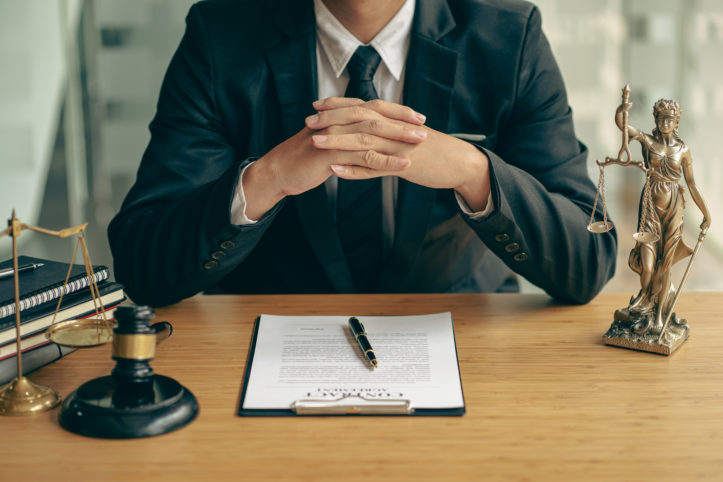
Legal Consequences and Redemption: The Case of Terra Morehead and the Importance of Choosing the Right Criminal Defense Attorney
Terra Morehead, once a prosecutor in Wyandotte County and later an assistant U.S. attorney in Kansas, recently chose to give up her law license amid a series of ethical challenges. The Kansas Supreme Court is set to officially disbar her soon. This decision followed after an investigative report by the Department of Justice hinted at potential misconduct that might have influenced her in ongoing disciplinary actions. The two main complaints against her stemmed from her tenure as an assistant U.S. attorney.
In one instance, a federal judge overturned criminal convictions and dismissed charges, concluding that Morehead had violated the defendant’s constitutional rights. The Office of the Disciplinary Administrator (ODA) in Kansas believed her actions broke multiple professional conduct rules. In another case, she was up for sentencing by a federal judge for misconduct that included making false statements and engaging in dishonest behavior.
Morehead’s involvement in Lamonte McIntyre’s case brought her methods under further scrutiny. She was accused of intimidating a witness and conspiring with detective Roger Golubski to wrongfully convict McIntyre of double murder. McIntyre, who spent nearly 30 years fighting his wrongful conviction from his teenage years, was visibly relieved upon learning of Morehead’s resignation from law practice, seeing it as a closure and assurance that she could no longer harm anyone else.
Darryl Burton, who shared a lawyer with McIntyre, also faced wrongful conviction and spent nearly 25 years behind bars before proving his innocence. He emphasized the broader impact of wrongful convictions, pointing out the life-altering consequences and missed opportunities for those incarcerated.
Both men are now actively involved in the Miracle of Innocence Project, helping others wrongfully convicted to regain their freedom. They express a desire for a quicker response from the legal system to prevent future injustices like those they endured.
Meanwhile, Niko Jackson, another key witness in McIntyre’s case, admitted years later that she was coerced by Morehead under threats of losing her children and facing imprisonment herself. This pattern of behavior led to a broader call for a thorough review of Morehead’s past cases, particularly those involving potential abuses of power.
As the legal community and victims like McIntyre and Burton reflect on these developments, there is a strong push for systemic review and accountability to ensure that similar injustices are corrected and prevented.
Choosing the right criminal defense attorney is crucial when facing legal charges, as the quality of your representation can significantly influence the outcome of your case. Here are some key considerations to help ensure you select the best lawyer for your needs:
1. Specialization and Experience: It’s essential to hire an attorney who specializes in criminal law. Criminal defense is a complex field requiring specific skills and knowledge. Look for an attorney with considerable experience handling cases similar to yours. For instance, if you’re charged with a DUI, find a lawyer who specializes in DUI defense. An experienced attorney will have a deeper understanding of the relevant laws, courtroom strategies, and procedural rules, potentially increasing your chances of a favorable outcome.
2. Reputation and Reviews: Research potential attorneys to understand their reputation within the legal community and among past clients. Online reviews, testimonials on the attorney’s website, and peer recommendations can provide insights into their reliability, professionalism, and success rate. Moreover, you can check with the state bar association to see if the attorney has been subject to disciplinary actions, which could be a red flag.
3. Personal Interaction: Schedule a consultation, which is usually free, to meet with the attorney in person. This meeting can help you gauge whether you feel comfortable with them and their approach to your case. Assess their communication skills, attentiveness to details, and willingness to answer your questions. A good defense attorney should be approachable, empathetic, and transparent about their strategy and the possible outcomes of your case.
4. Team and Resources: Some cases require a team approach, especially in complex legal matters. Ask about the resources the attorney has access to, such as investigators, expert witnesses, and paralegals. Having a robust team can be instrumental in thoroughly preparing for your defense.
5. Fee Structure: Understand how the attorney charges before making a commitment. Some work on a flat fee basis, while others may charge by the hour. Make sure the fee structure is clear and ask about any additional costs like court fees or expenses for expert witnesses. It’s important to balance affordability with the quality of service, remembering that the cheapest option might not always be the best.
6. Case Management: Inquire how they manage their caseload. An overloaded attorney may not have enough time to dedicate to your case, which can affect its outcome. Find out who will be handling your case—whether it’s the attorney you meet or another lawyer in the firm. Knowing who will be directly working on your case and how they plan to communicate updates can help set expectations.
Choosing the right St. Joseph criminal defense attorney involves a careful evaluation of their expertise, reputation, and your personal comfort with them. By considering these factors, you can better position yourself for a defense that actively works towards the best possible resolution of your case.


